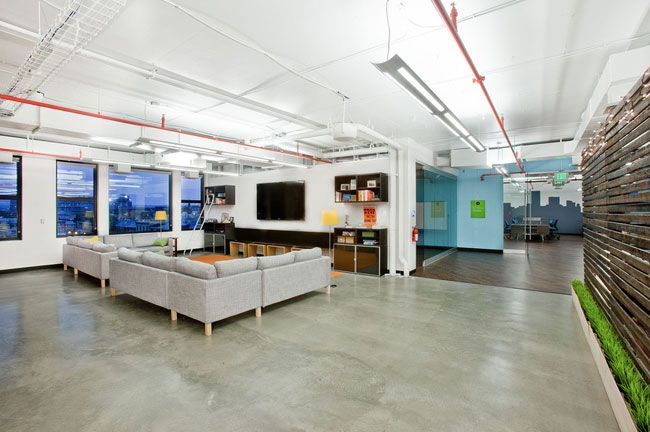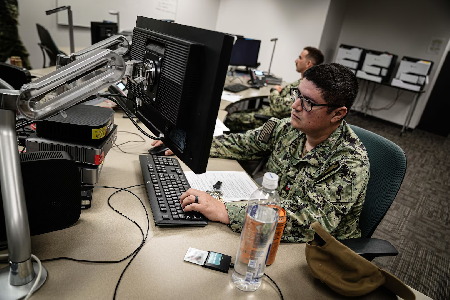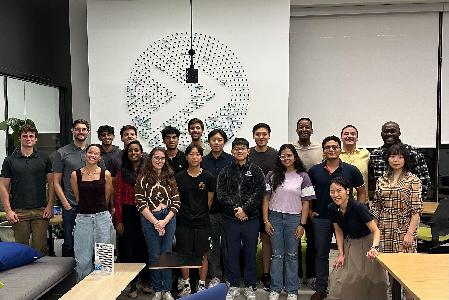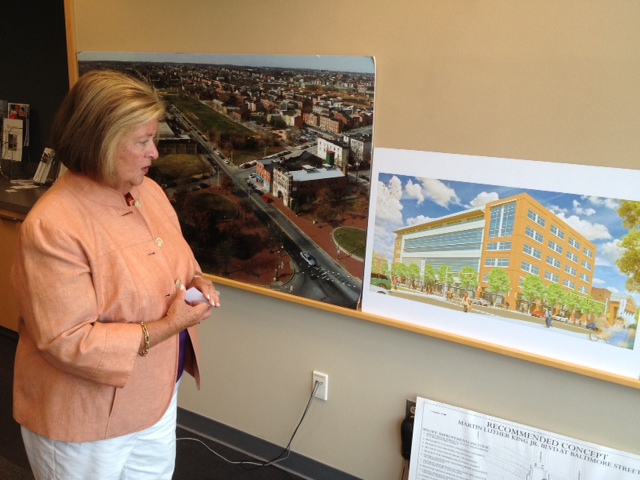There’s construction happening at 873 W. Baltimore St., the large-scale kind where the hums of big motors mix with commands shouted by workers wearing reflective traffic vests with dust-caked beards hidden beneath yellow hard-hats.
But down the street, at 801 W. Baltimore St., there’s construction of a different kind. A slew of biotechnology startups, spread out over six floors and more than 200,000 square feet, are slowly building companies, discovering new biomolecules, developing new treatments for cancer and thinking up new ways to store living tissue for research.
Within a few years time, the hole at 873 W. Baltimore St. will be a new 200,000-square-foot multi-tenant building — housing more biotech startups and a new incubator — the third of its kind at the University of Maryland BioPark on Baltimore’s west side. For a decade now, this sort of development in and around the BioPark has, by all means, made a slice of West Baltimore a hub for innovation. It’s a feeding ground for early-stage startups, and just one place where Baltimore’s broader technology community congregates.
“Being in the cluster holds high value,” said Jane Shaab, executive director of the BioPark, and someone who has lived in Baltimore city for 37 years. “Smart people, entrepreneurial people—the juice is people, it’s ideas, it’s people being together and being able to formally and informally push ideas forward.”
Shaab’s argument is a variation of the one championed by Harvard economist Edward Glaeser in “The Triumph of the City,” and it’s the same argument that benefits a local tech scene that is dispersed in strategic pockets of activity throughout Charm City’s neighborhoods: put bright, ambitious people around one another, and watch sparks fly.
Taxes, schools and culture made Baltimore tech a suburban story in the past, but along with the BioPark, the city has its share of flourishing communities of dense innovation clusters. Good thing, the trend of technology getting done now in flourishing cities is a national one.
- Canton claims the publicly-traded, global mobile advertising firm Millennial Media and is the home to the more startup-minded Emerging Technology Center until it relocates to this fall.
- Tide Point is anchored by Advertising.com, acquired by AOL in 2004, in the Under Armour campus.
- Fells Point has creative agencies within walking distance to coffee shops and restaurants.
- Johns Hopkins University is a wide-ranging jobs engine, from its research work, to the Social Innovation Lab, to the education technology startups in the Eastern campus ETC.
- Incubators, whether it’s Betamore in the heart of Federal Hill, or Hopkins’ FastForward near Druid Hill Park, aren’t isolated to one neighborhood. They spin off talent, companies and energy and create their own hubs.
“The clusters start out, and they need to expand, and people want to know that there are other people around,” said Deb Tillett, president of the Emerging Technology Center, which is moving its Canton-based office into the third floor of the old King Cork and Seal Building on North Haven Street, north of Highlandtown.
“You can have multiple places like this,” Tillett said. “But you can’t just do it arbitrarily.”
A reticence to purposefully build hubs of technological activity in Baltimore belies a more philosophical argument to be had about how, and why, certain neighborhoods are more popular for early-stage tech, the startups and the people.
You might not find many young startups in downtown Baltimore, where higher rents cultivate a more buttoned-up, established business community. But you will find it in a place like Federal Hill, near other existing startups — and the bars that a younger crowd frequents.
That’s some of what motivated Mike Brenner to cofound Betamore, an incubator-cum-coworking space that opened in December 2012, across from Cross Street Market in Federal Hill — an area perhaps better known for attracting the sort of clientele that lines up shots at MaGerks or other game-day bars.
“We wanted to create a first dot where we are, and then have things move out concentrically,” Brenner said. “We don’t think we should be the hub, but we should be a hub.”
Given the sometimes provincial, parochial sensibilities of some Baltimoreans, branding your own venture as a hub of startup tech activity — saying your place essentially owns the city’s tech community — smacks of that arbitrariness that Tillett warns of. (Of course, the same might be said of the ETC, with its top-down launch funding from the Baltimore Development Corporation.)
It’d be a convincing argument, if both the ETC, which has been around since the late 1990s, and even Betamore hadn’t been the homes of successful startups, young and old.
NV3 Technologies, makers of smartphone-charging kiosks in use around the world, leased office space inside the Canton offices of the ETC, and will now move into its own office on the first floor of the King Cork and Seal Building. Cybersecurity startup Riskive, inside Betamore’s 24/7 dedicated space for software startups, has been hiring new workers and raising capital and now has taken its own offices in the same building.
People want to be around people who do work like they do. It creates density.

Betamore’s community lounge, with doors to the full-time space in the background. Photo courtesy of Betamore.
In other words, while it’s appropriate for a place like Baltimore, with a burgeoning tech community, to be wary of top-down, institutional approaches to supporting innovation in neighborhoods where a university, or an incubator, or the city can directly benefit, it’s oftentimes those places where it behooves new companies to locate in the first place.
Not to mention that there are companies in other neighborhoods in Baltimore that don’t necessarily fit the mold of the high-risk tech-based software startups that have sprouted wildly nationwide in large ecosystems, like New York City and Palo Alto, as well as small ones like Charm City.
The Baltimore Node makerspace is on Oliver Street in Station North, caddy-corner the Baltimore Design School. The Baltimore Foundery makerspace sits on South Central Avenue across from Stratford University — and several blocks north of the new office of e-commerce startup Groove Commerce, which is moving from its office inside the Canton-based ETC into a brand new building.
As attractive as it is to seize onto one neighborhood in Baltimore, brand it the city’s “tech center,” and then insist everyone converge en masse, that’s just now how it’s been done here — or anywhere else, really. The city is the center. The city is where the growing tech community lives now.
New construction will undoubtedly come in places where tech companies already are. But there’s no one place within Baltimore city that owns the ideas.
“Entrepreneurial activity — there are no borders to that,” Shaab said. “People socialize with each other. They seek funding from the same sources. They’re the things that matter.”
And those elements, if one looks hard enough, can be found throughout Baltimore.
Before you go...
Please consider supporting Technical.ly to keep our independent journalism strong. Unlike most business-focused media outlets, we don’t have a paywall. Instead, we count on your personal and organizational support.
Join our growing Slack community
Join 5,000 tech professionals and entrepreneurs in our community Slack today!

A new model for thinking about how to grow regional economies: the Innovation Ecosystem Stack

Can the nation’s biggest cyber hub even handle Craiglist founder’s $100M security pledge?

20 tech community events in October you won’t want to miss


